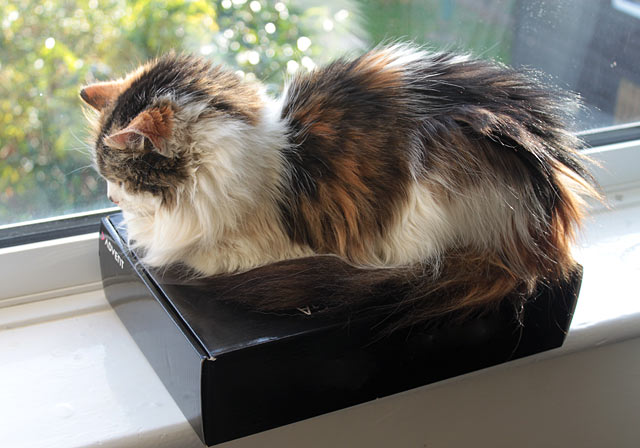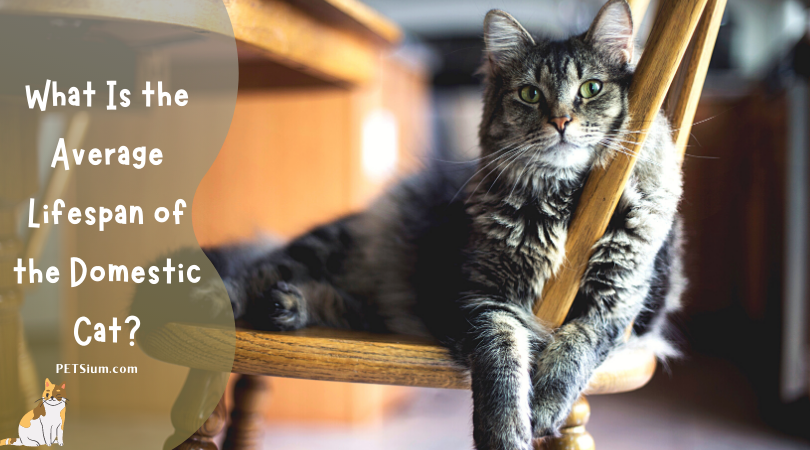Post Navigation
How Long do Cats Live?
Whenever we adopt a new cat or kitten, whether it is our first pet or not, our mind is full of 1000’s of unique cat names until we choose the one, and we often ask ourselves, “How long do cats live”? It is a natural curiosity, because most pet owners would obviously love to extend their cat’s lifespan and prolong their cat’s life expectancy to the utmost.
While the natural lifespan or your typical domesticated feline is determine by many factors beyond human control, there are indeed many steps that may be taken to lengthy our time with our cats.
Some of the primary factors that weigh on how long do cats live:
- Genetics (feline family history)
- Environment
- Nutrition
- Lifestyle
- Breed
Genetics of Cat
Obviously, the genetics of each individual cat are not ours to determine, nor can we have any control over the breed of the cat (save for choosing to own a specific breed). If you do choose to own a particular breed of choice, there exist several breeds of cat that are known to possess especially impressive long-livedness.
These include: Persians, Orientals, Egyptian Maus, and Burmese. Each of these breeds commonly live in excess of 15 or even 20 years, and a few record holders have been claimed to reach almost 40 years old!
The aspects of a cat’s life that we can control play an even more important role in how long our cats live.
Cat Nutrition
Nutrition is perhaps the most crucial. Just as we must be very careful about we we do and do not put into our own bodies, so must we be just a nutritionally aware about feeding our cats and kittens. Be sure to research your food choices carefully.
Always choose to purchase from a respected brand with specifically formulated diets that correspond with the different stages of each cats life. Also take into account each individual cat’s special health needs.
Cat Environment
The environment and lifestyle are also fundamentally important aspects when considering how long do cats live, and they are both thankfully completely up to a cat owner to establish and control. First and foremost, we suggest *keeping your cat indoors*.
Numerous studies and researchers have found that cats who are allowed to roam freely, even in seemingly “safe” areas, almost always have a lower life expectancy than strictly indoor cats. A domesticated cat simply has no business wandering outside in a modern human landscape- too many dangers await them.
Lifestyle of Cat
It is also a very bad idea to de-claw a cat…and not only because it is almost universally considered cruel. If a de-clawed cat ever does end up outside by accident, it has not way to defend itself, or even escape potential predators/other aggressive cats (because they can’t climb trees!).
And, of course, always have your pet spayed or neutered. Not only does this decrease their potential aggressiveness, but almost completely removes their desire to seek the outdoors in the first place.
This does not mean, however, that we want our cats to be inactive or sedentary. For physiological as well as psychological well-being, a cat should never live a sedentary lifestyle. Obesity is a common problem in household cats, and one of the greatest threats to their long lives.
When possible, it is best to own multiple cats, granting playmates. With or without living companions, always make sure that a cat has plenty of toys, for enjoyment as well as exercise.
How Long do Cats Live if You Take Steps to Extend Their Lifespan?
To ensure that your cat will have a long lifespan, there are numerous steps that a diligent owner should take and many factors to consider. The breed of the cat, it’s genetic makeup, and the environment in which it is raised all play a part.
Perhaps most important to how long cats live is their nutrition. Each stage of a cat’s life, from kittenhood to old age, has an appropriate food type, because the nutritional needs of a cat change throughout its life. You wouldn’t feed a human infant pizza, right? Likewise, you wouldn’t feed a growing teenager baby food, nor would you feed a 90-year old sirloin steak. So it is with cats.
There are several great brands of cat food that are specially formulated to correspond with your cats current age. Hill’s Science Diet and Royal Canin are two well-respected brands that specifically cater to the different stages in our pets’ lives, both cats and dogs, and both are highly suggested.
Be sure to select a type of food that is in agreement not only with your cat’s age, but also any special dietary needs that might arise from various health problems or possible concerns (such as obesity or urinary tract infections).

We all know the old saying, that cats have nine lives… but how long do cats live, really? The answer depends almost wholly on the lifestyle of the cat the the manner in which it is treated and raised and cared for.
There are tales and anecdotes that claim some cats have been known to live well into their 30s (and even 40s!), and the World Record is supposedly 38 years old for a domestic cat. In reality, most cat lovers consider themselves fortunate to own a cat for more than15 years.
Cats mature at an incredible rate, especially in comparison to humans. By the time a cat is only two years old, it is the equivalent of a 25 year old in “human years”. By the time a cat reaches 10, it should be considered a senior citizen, and should be cared for and treated appropriately.
How Long Do Cats Live in the Wild?
Domestic cats have a varied lifespan, depending on many factors, but how long do cats live in the wild? Unfortunately, there isn’t much conclusive data to determine precise lifespans of wild cats in the many differing environs throughout the planet.
Due to the extreme difficulty involved in the identification and tracking of individual cats, but a rough estimate of wildcat lifespans can be estimated simply by identifying the species in question.
The following table provides the typical lifespans of some of the more prevalent types of cat:
- Lion – 15 years
- Tiger – 18 years
- Bobcat – 20 years
- Panther – 12 years
- Lynx – 15 years
- Leopard – 15 years
Of course, these and other species of wild cats usually live longer in captivity (more or less 5 years), as the receive safer food and do not have to contend with the many dangers of the wilderness.
All in all, the most crucial factor in determining how long your cat lives is you, the owner. Take the time to research and the steps to maintain your cat’s health and happiness as you would your own, and hopefully you and your furry friend will enjoy many, many great years together!





